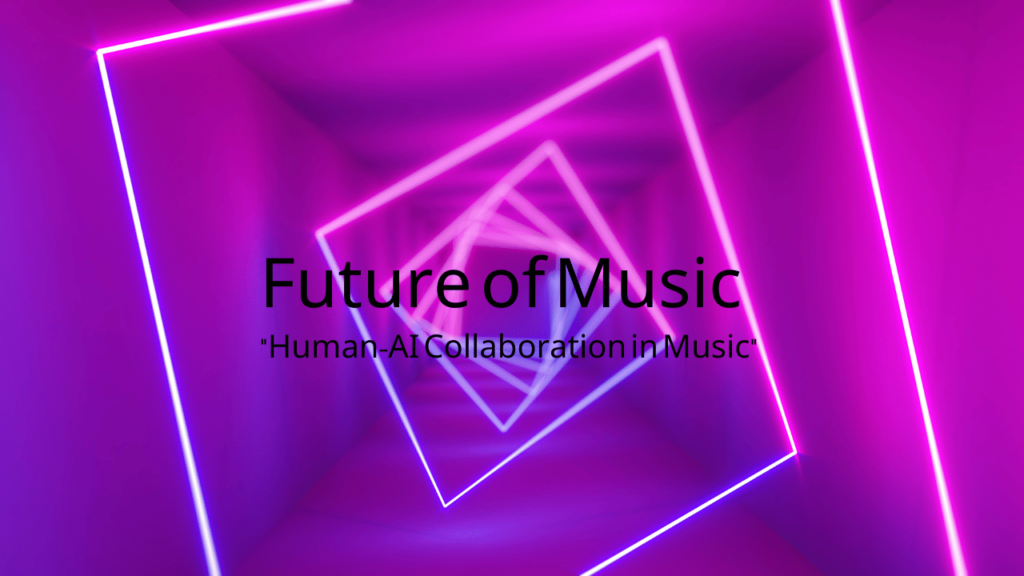
AI in Music! Music enthusiasts and tech-savvy readers! Can you remember the last time you heard a song that hit you right in the feels or discovered a new artist that instantly became your jam? Music has this incredible power to connect with our emotions and transcend boundaries as where words fail,music speaks. Today we’re diving into how Artificial Intelligence (AI) is reshaping the way we create and enjoy those musical moments.
AI in music:
You might think, “AI in music? How does that even work?” We’re used to thinking of music as this heart-and-soul, human thing, right? Well, AI is showing us that it can groove to the beat too. And, that’s what we’re here to reveal. From composing tunes toto creating playlists that suits best to your interests, AI is no longer just a backstage techie; it’s the new spotlight in the music industry.
So, what’s this AI music thing all about? Imagine a computer that learns from tons of songs – from the old classics to the latest hits. This computer then starts making its own tunes, in all sorts of styles. From fancy classical music to the songs you hear on the radio, AI can whip up something for everyone.
Composition and production
AI is like a creativity booster for musicians. It can give them ideas when they’re stuck. Maybe you’re trying to write a song but hit a wall. AI can help you with catchy melodies, chords, and even whole songs. It’s like having a musical brainstorming buddy that never gets tired.
- AI can also be used to automate tasks such as mixing and mastering, which can save producers a lot of time and money.
- Some AI-powered tools can even analyze existing music and identify its key elements, such as tempo, rhythm, and melody. This information can then be used to create new music that is similar in style to the original.
- AI is being used by streaming services to personalize the listening experience for each user. For example, Spotify’s Discover Weekly playlist is generated using AI algorithms that analyze your listening history and recommend new music that you might like.
The music of the future is all about blending cultures and breaking boundaries, thanks to AI. Cross-cultural music fusion is taking center stage, It’s creating beautiful, hybrid genres that resonate globally, proving that music is a universal language.
The healing power of music has long been recognized, and now, with the aid of Artificial Intelligence (AI), music therapy is experiencing a profound transformation. These tools can select music that aligns with an individual’s emotional state, helping to reduce anxiety, manage stress, and improve overall mental health.

Tools and applications:
- LANDR: LANDR is an online mastering service that uses AI to master audio tracks. It can be used by musicians, producers, and podcasters to create professional-sounding recordings.
- MuseNet: MuseNet is a music generation model from Google AI that can generate music in a variety of styles, including classical, jazz, and pop. It can be used to create new compositions, or to remix existing pieces of music.
- Jukebox: Jukebox is a music generation model from OpenAI that can generate music in a variety of styles, including pop, rock, and classical. It can also generate music that is similar to the style of a particular artist.
AI is still in its early stages of development, but it is clear that it has the potential to revolutionize the music industry. By automating tasks, generating new ideas, and creating new music formats, AI is helping musicians, producers, and distributors to create and share music more effectively than ever before.
How artists are using AI
- the band Coldplay used AI to generate their music for the song “A Wave“.
- The music producer David Guetta uses AI to help him with songwriting and production.
- The record label Sony Music is using AI to identity new artists and to predict the success of new songs.
- The streaming services of Spotify,Apple Music and Amazon music is using AI to personalize its recommendations for users
Conclusion:
So, people are having a blast with AI in music, experimenting in all sorts of crazy ways. One cool example is taking a voice from an Urdu singer and mixing it into an English song. It’s like musical fusion on steroids!
Now, how does this impact professional singers? Well, there’s a flip side. AI can sometimes make it seem like anyone can be a singer, which can be a bit of a bummer for the pros. It’s like, “Hey, why hire a singer when AI can do it?” But, on the positive side, it’s also pushing the pros to get even more creative and bring their A-game, ’cause there’s no replacing that human touch, emotion, and passion they bring to music.